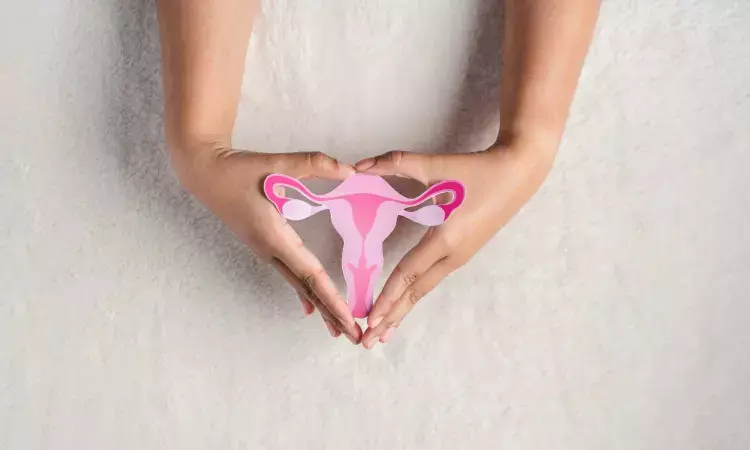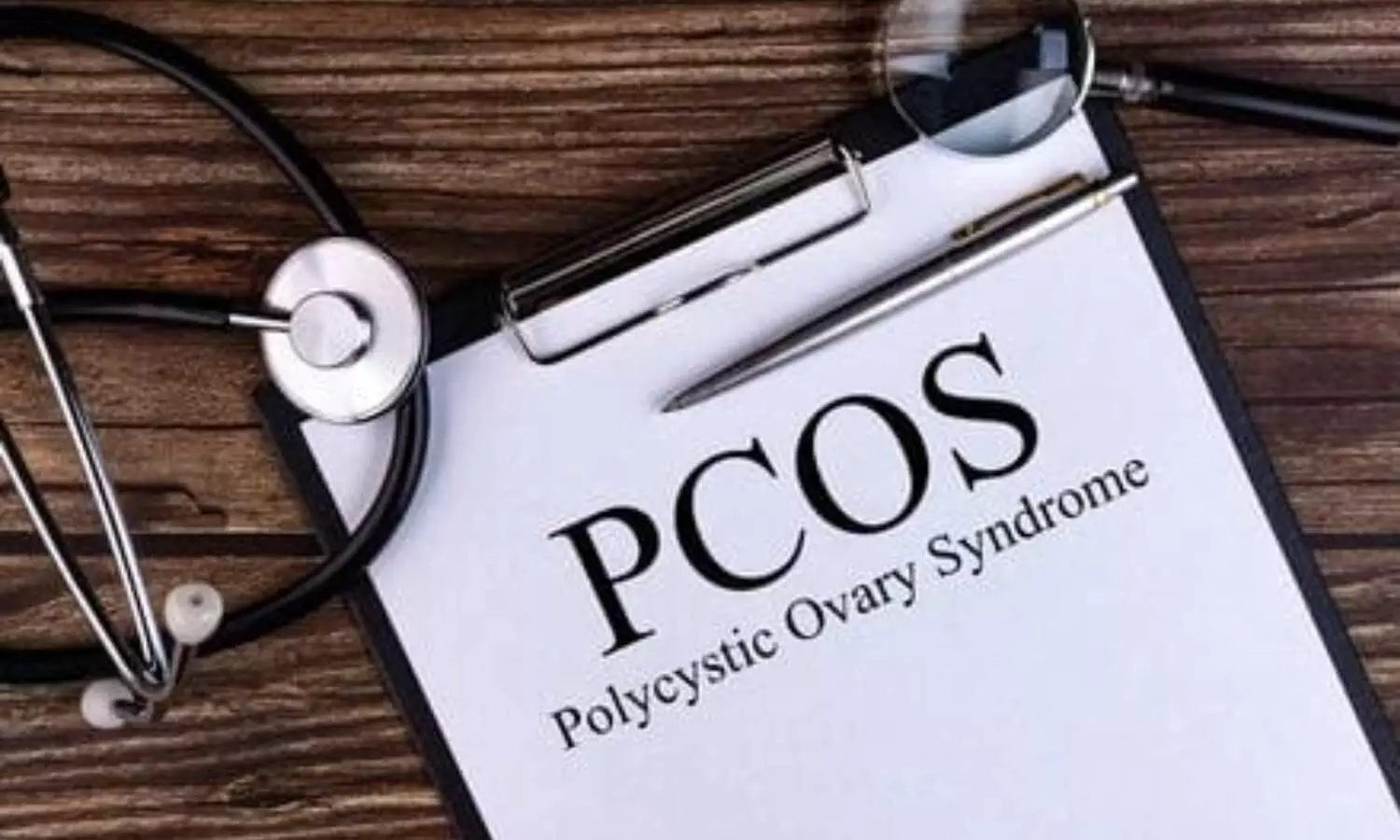- Home
- Medical news & Guidelines
- Anesthesiology
- Cardiology and CTVS
- Critical Care
- Dentistry
- Dermatology
- Diabetes and Endocrinology
- ENT
- Gastroenterology
- Medicine
- Nephrology
- Neurology
- Obstretics-Gynaecology
- Oncology
- Ophthalmology
- Orthopaedics
- Pediatrics-Neonatology
- Psychiatry
- Pulmonology
- Radiology
- Surgery
- Urology
- Laboratory Medicine
- Diet
- Nursing
- Paramedical
- Physiotherapy
- Health news
- Fact Check
- Bone Health Fact Check
- Brain Health Fact Check
- Cancer Related Fact Check
- Child Care Fact Check
- Dental and oral health fact check
- Diabetes and metabolic health fact check
- Diet and Nutrition Fact Check
- Eye and ENT Care Fact Check
- Fitness fact check
- Gut health fact check
- Heart health fact check
- Kidney health fact check
- Medical education fact check
- Men's health fact check
- Respiratory fact check
- Skin and hair care fact check
- Vaccine and Immunization fact check
- Women's health fact check
- AYUSH
- State News
- Andaman and Nicobar Islands
- Andhra Pradesh
- Arunachal Pradesh
- Assam
- Bihar
- Chandigarh
- Chattisgarh
- Dadra and Nagar Haveli
- Daman and Diu
- Delhi
- Goa
- Gujarat
- Haryana
- Himachal Pradesh
- Jammu & Kashmir
- Jharkhand
- Karnataka
- Kerala
- Ladakh
- Lakshadweep
- Madhya Pradesh
- Maharashtra
- Manipur
- Meghalaya
- Mizoram
- Nagaland
- Odisha
- Puducherry
- Punjab
- Rajasthan
- Sikkim
- Tamil Nadu
- Telangana
- Tripura
- Uttar Pradesh
- Uttrakhand
- West Bengal
- Medical Education
- Industry
Patients opting to Oocyte Cryopreservation have low rate of return for oocyte utilization: JAMA

In a groundbreaking cohort study using data from the Society for Assisted Reproductive Technology (SART) national database, researchers have unveiled intriguing patterns in the utilization of cryopreserved oocytes for family building. The study revealed a low overall rate of return to utilize previously vitrified oocytes despite an increasing number of patients pursuing oocyte cryopreservation.
The study results were published in the journal JAMA Network Open.
Poor ovarian response (POR) to stimulation has the potential to influence patients' future inclination or necessity to use cryopreserved oocytes for family planning. These insights, gleaned from data provided by the Society for Assisted Reproductive Technology (SART), emphasize the importance of personalized counseling and additional research into the factors that shape decision-making regarding the utilization of oocytes. Hence, researchers conducted a study, spanning from January 2014 to December 2020, that sheds light on the association between ovarian response to stimulation and the likelihood of patients returning for oocyte utilization following planned oocyte cryopreservation (OC) along with the time elapsed from vitrification to warming.
The research, analyzing a staggering 67,893 autologous oocyte freezing cycles among 47,363 patients in US fertility clinics, identifies a subset of individuals experiencing Poor Ovarian Response (POR). This category comprises 13.5% of patients, totaling 6421 individuals, characterized by having fewer than 5 oocytes vitrified across all ovarian stimulation cycles.
Findings:
- Despite an overall low rate of return to utilize previously vitrified oocytes, patients with POR exhibit a significantly higher return rate (4.0%) compared to those with a normal ovarian response (2.3%).
- The age-specific trends are particularly noteworthy, with patients aged 30 to 34 years and 35 to 39 years in the POR group showing a more pronounced inclination to return for oocyte warming and utilization.
- Surprisingly, the time elapsed from vitrification to warming remains consistent between patients with POR and normal responders.
- Both groups exhibit similar average times, challenging the assumption that the delay in utilization is influenced by the ovarian response itself.
- Moreover, a multivariate analysis, adjusting for factors such as age, clinic region, body mass index, and history of endometriosis, identifies a key factor associated with the utilization of oocytes — having fewer than 5 oocytes vitrified.
- Patients falling into this category demonstrated higher odds of utilizing their cryopreserved oocytes.
The findings have implications for the growing number of individuals opting for oocyte cryopreservation. Despite the increased interest in fertility preservation, the study reveals a unique and somewhat unexpected pattern in patient behavior. The distinct trends observed among those with different ovarian responses suggest a complex interplay of factors influencing the decision to return for oocyte utilization. This research not only contributes to the evolving landscape of assisted reproductive technologies but also prompts a reevaluation of counseling strategies for individuals pursuing oocyte cryopreservation.
Further reading: Fouks Y, Sakkas D, Bortoletto PE, Penzias AS, Seidler EA, Vaughan DA. Utilization of Cryopreserved Oocytes in Patients With Poor Ovarian Response After Planned Oocyte Cryopreservation. JAMA Netw Open. 2024;7(1):e2349722.
doi:10.1001/jamanetworkopen.2023.49722
BDS, MDS
Dr.Niharika Harsha B (BDS,MDS) completed her BDS from Govt Dental College, Hyderabad and MDS from Dr.NTR University of health sciences(Now Kaloji Rao University). She has 4 years of private dental practice and worked for 2 years as Consultant Oral Radiologist at a Dental Imaging Centre in Hyderabad. She worked as Research Assistant and scientific writer in the development of Oral Anti cancer screening device with her seniors. She has a deep intriguing wish in writing highly engaging, captivating and informative medical content for a wider audience. She can be contacted at editorial@medicaldialogues.in.
Dr Kamal Kant Kohli-MBBS, DTCD- a chest specialist with more than 30 years of practice and a flair for writing clinical articles, Dr Kamal Kant Kohli joined Medical Dialogues as a Chief Editor of Medical News. Besides writing articles, as an editor, he proofreads and verifies all the medical content published on Medical Dialogues including those coming from journals, studies,medical conferences,guidelines etc. Email: drkohli@medicaldialogues.in. Contact no. 011-43720751




